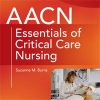Adjuvant therapeutic plasma exchange in septic shock
link.springer.comThe hallmark of sepsis is a pathological host response to an infection that may lead to organ dysfunction, shock and high mortality.
Besides numerous circulating mediators initiating inflammation, vascular barrier breakdown and microvascular hypoperfusion, the consumption and subsequent lack of protective plasmatic factors additionally contribute to sepsis pathophysiology.
Immunotherapy is complex and selective inhibition of key molecules, such as TNFα or inflammatory pathways, including Toll-like receptor 4 signaling was so far not effective in men.
Therapeutic plasma exchange (TPE) might eliminate circulating injurious mediators in a short intervention and simultaneously replace essential but already consumed protective factors. We have recently demonstrated safety and feasibility of TPE in septic shock in a prospective observational study (POS).
Although uncontrolled by design, efficacy endpoints, such as norepinephrine (NE) requirement, suggested protective effects in these extremely sick patients.
Previous studies using TPE in heterogeneous sepsis groups have even implicated potential survival benefits.
Based on these findings, we hypothesized that a single adjuvant TPE performed within 24 h after onset of septic shock might lead to rapid hemodynamic improvement and therefore performed a pilot bicentric randomized controlled trial (RCT) to test this

















